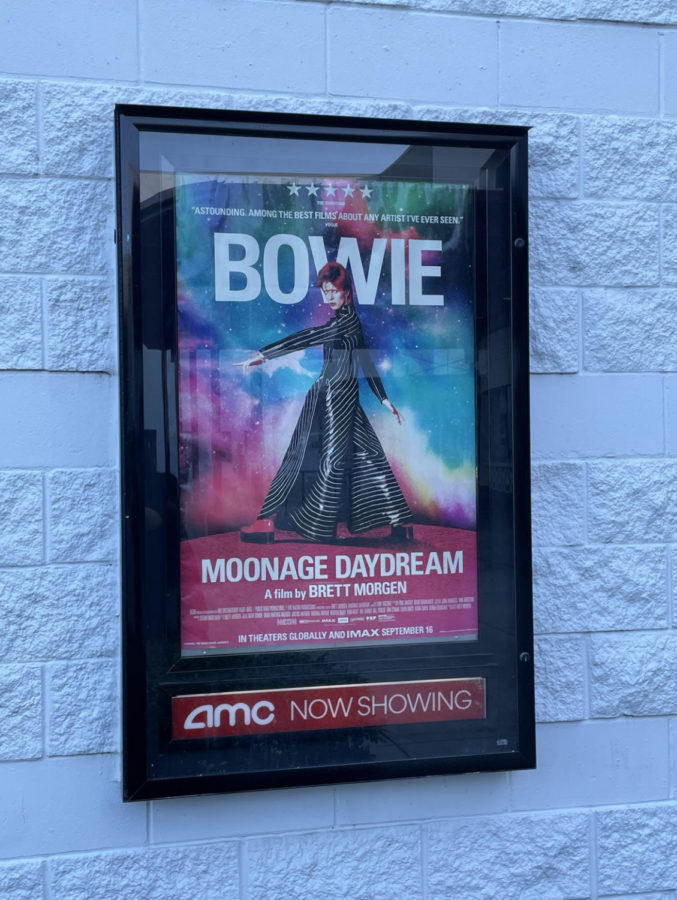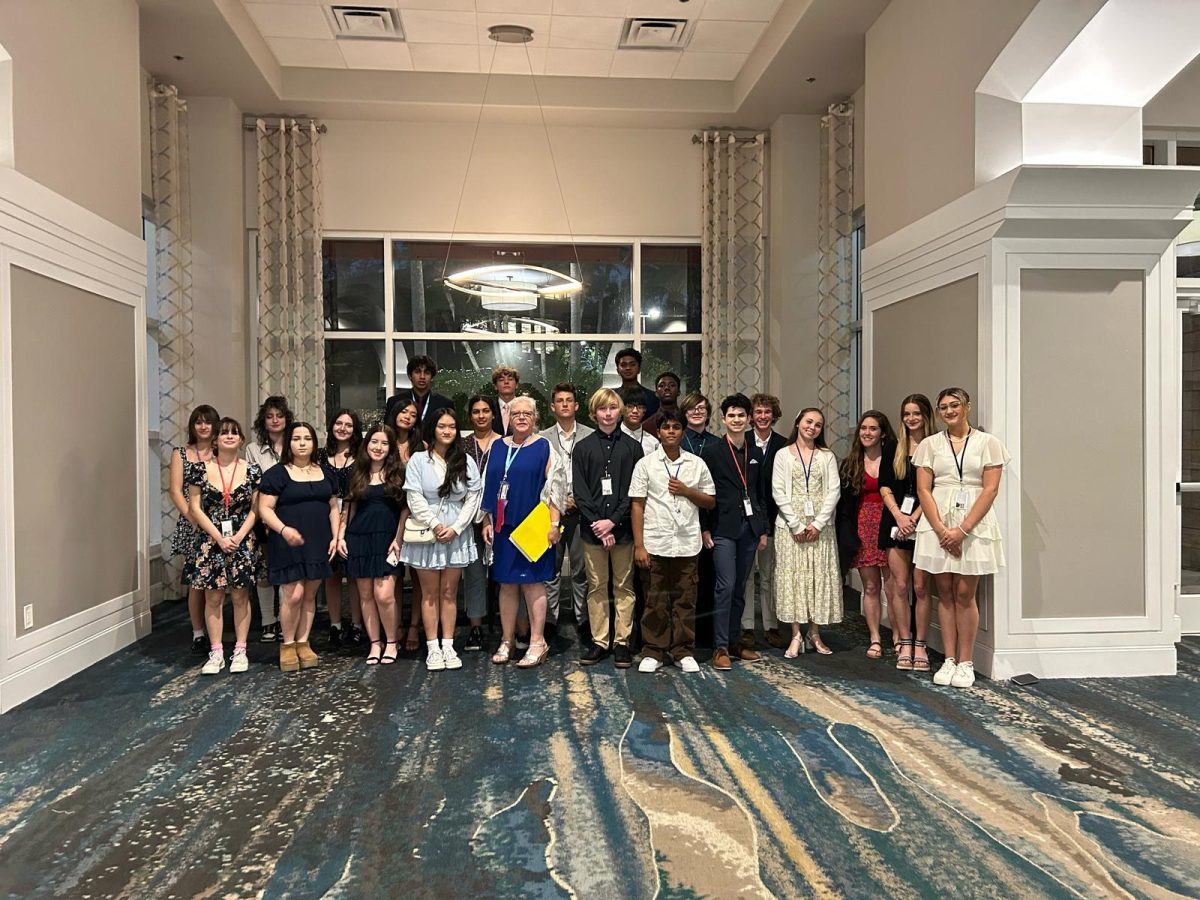“Moonage Nightmare” was a Conceited Chaos
Bowie had more to say in his music than in real life.
Photo Grace Shafer
Bowie Struts in one of his many iconic outfits. The theater was giving out complimentary posters of this image.
October 11, 2022
David Bowie. An alienation of a man. His teeth, or fangs rather, bare a yellow, aged hue. Some in between of man, woman, foreign body. His music changed the world, but his words were, in my opinion, not nearly as impactful. So, how do you “accurately” make a singular movie to explicate the multitudes of not one, but many characters of a man?
This documentary was difficult to follow because it had no structure or plot. There was no focus; beyond just this mysticized image, not much was told about Bowie himself. I hadn’t watched his prior documentary about Kurt Cobain, “Montage of Heck”, but had heard similar reviews. Now having watched half of it after viewing “Moonage Daydream”, I can digest and appreciate the chaos a little more, but the way he conveys this lunacy in “Montage of Heck” is much more driven and personal to Cobain and his emotional development.
The director, Brett Morgan, tries to take the cliche of Bowie and tries to formulate some niche take, but just fails miserably. The loud, complex character that is Bowie is represented through pure mayhem. Flashing sounds and colors, random preternatural clips mask the lack of depth of the movie and of Bowie himself. Morgan also skipped major defining albums for Bowie, which I found odd.
Now, I LOVE Bowie’s music. I just don’t think the movie needed to talk about his perspective of life so much like it’s some original, groundbreaking thought. The second half of this two-and-a-half-hour movie was psycho babble and meandering nonsense. It’s not the same as Bob Dylan, Bob Marley and John Lennon speaking. Their words, not just lyrics, changed the world. I think Cobain could be added to that list too; maybe that’s why Morgan’s previous film worked better.
You can choose to go on an editing rampage but when you can clearly see that the intent is primarily for aesthetics. I actually did enjoy some of the more artistic edits in the movie, but at a certain point, it just appeared as arrogance. Truly, I think the director loves himself more than Bowie. This is a documentary, yes idiosyncrasy improves the movie, but it shouldn’t define it. You have to explain the character, BOWIE.
I think the part that grabbed me the most (one that Morgan did rather well) was diving into Bowie’s adolescence. Bowie talks about his childhood and how some of the anger and grief described in his music aren’t fully true to his life. He has this hunger for pain, but it doesn’t directly derive from his personal “trauma”. This is a much better representation of the chaos and mystery of Bowie, compare to the other 50 clips of just outlandish mush.
I wanted to like this movie, but I just don’t think it quite satisfied my expectations for a “good” Bowie documentary. The director just had this one idea to constantly convey pandemonium and it was just too much. Hey, at least I got a cool poster out of it.











